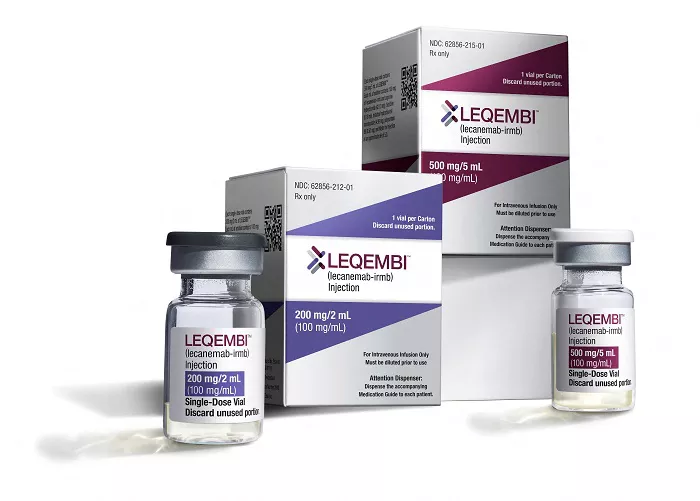Mania disorder, also known as bipolar disorder or manic-depressive illness, is a complex and chronic mental health condition that affects millions of people worldwide. Characterized by extreme mood swings, individuals with mania disorder experience periods of elevated, euphoric, and energetic states (mania) alternating with episodes of depression. This article delves into the various aspects of mania disorder, exploring its symptoms, potential causes, diagnosis, and available treatment options.
The Spectrum of Mania Disorder
Mania disorder exists on a spectrum, with varying degrees of severity and duration. At one end, individuals may experience hypomania, which is a milder form of mania characterized by elevated mood, increased energy, and enhanced creativity. At the other end, full-blown mania manifests with intense euphoria, impulsivity, and potential psychosis. These manic states are interspersed with depressive episodes, leading to the term “bipolar disorder.”
Early Warning Signs of Manic Episode
Recognizing the early warning signs of a manic episode is crucial for individuals with mania disorder and their loved ones. Identifying these signs can help initiate early intervention and prevent the escalation of symptoms. While the specific signs can vary from person to person, some common early indicators of a manic episode include:
1. Increased Energy and Activity: A sudden surge in energy levels and a noticeable increase in goal-directed activities. The person may feel like they have boundless energy and may engage in multiple tasks simultaneously.
2. Mood Changes: A distinct change in mood characterized by euphoria, excitement, or extreme irritability. The person may appear overly happy, enthusiastic, or agitated.
3. Reduced Need for Sleep: An apparent decrease in the need for sleep, feeling refreshed even after only a few hours of rest. The person may also experience difficulty falling asleep.
4. Rapid Speech: Talking more than usual, with rapid and pressured speech. The person may jump from one topic to another, making it challenging for others to keep up.
5. Grandiosity: An inflated sense of self-importance and belief in one’s abilities. The person may exhibit overconfidence and take on unrealistic projects or goals.
6. Impulsivity: Engaging in risky or impulsive behaviors without considering potential consequences. This could include reckless driving, excessive spending, or substance abuse.
7. Increased Socialization: A notable increase in social interactions, seeking out new relationships, or being excessively talkative with others.
8. Hyperfocus: Intensely focusing on a particular task or project, sometimes to the point of neglecting other responsibilities.
9. Agitation: The person may become easily agitated or irritated, reacting strongly to minor frustrations.
10. Heightened Creativity: A surge in creative ideas and inspiration, leading to the pursuit of various artistic or innovative endeavors.
11. Decreased Appetite: A sudden loss of appetite or reduced interest in eating.
It’s important to note that experiencing one or two of these signs alone does not necessarily indicate a manic episode. However, if several of these signs persist or escalate, it may be a cause for concern. Additionally, some individuals may experience a period of mixed features, where both manic and depressive symptoms occur simultaneously.
Symptoms of Mania Disorder
People with mania disorder often have to go through two phases:
1. Manic Phase
During a manic phase, individuals may exhibit the following symptoms:
Elevated Mood: A persistent feeling of happiness, excitement, or euphoria.
Decreased Need for Sleep: Individuals may require little to no sleep and still feel energized.
Racing Thoughts: Thoughts may become rapid, leading to difficulty concentrating or staying focused.
Increased Activity: A surge in goal-directed activities, sometimes involving multiple tasks at once.
Risk-Taking Behavior: Engaging in impulsive activities with potential negative consequences, such as excessive spending or substance abuse.
Grandiosity: An inflated sense of self-importance or abilities.
Talkativeness: Rapid speech, often jumping from one topic to another.
Distractibility: Being easily distracted by external stimuli, leading to difficulty completing tasks.
2. Depressive Phase
During a depressive phase, individuals may experience the following symptoms:
Sadness: Overwhelming feelings of sadness or hopelessness.
Loss of Interest: Decreased interest or pleasure in previously enjoyed activities.
Fatigue: Persistent lack of energy or motivation.
Changes in Appetite: Either significant weight loss or weight gain.
Sleep Disturbances: Insomnia or excessive sleeping.
Feelings of Guilt: Excessive guilt or worthlessness.
Difficulty Concentrating: Trouble focusing on tasks or making decisions.
Thoughts of Death or Suicide: Recurring thoughts of death or suicidal ideation.
Causes of Mania Disorder
While the exact cause remains unknown, researchers have identified several potential factors that play a role in the onset of the disorder. These factors can be categorized as genetic, neurobiological, environmental, and lifestyle-related. It is essential to recognize that mania disorder is likely caused by a combination of these factors, rather than a single cause.
1. Genetic Factors
Family History: Having a first-degree relative, such as a parent or sibling, with bipolar disorder increases the risk of developing the condition. Studies have shown that the heritability of bipolar disorder is relatively high, indicating a genetic component.
2. Neurobiological Factors
Neurotransmitter Imbalances: Abnormalities in neurotransmitters, such as serotonin, dopamine, and norepinephrine, may contribute to the development of mania disorder. These chemicals play essential roles in mood regulation and communication between brain cells.
Brain Structure: Imaging studies have revealed structural differences in the brains of individuals with bipolar disorder, particularly in areas involved in emotion processing and regulation.
3. Environmental Factors
Stressful Life Events: Traumatic experiences, major life changes, or significant stressors can trigger the onset of mania or depressive episodes in individuals predisposed to the disorder.
Substance Abuse: The use of drugs or alcohol, especially during adolescence or early adulthood, can exacerbate or trigger episodes of mania or depression.
4. Biological Clock Dysregulation
Circadian Rhythm Disturbances: Disruptions in the body’s internal clock, which regulates sleep-wake cycles and other physiological processes, have been linked to mood instability and the occurrence of manic or depressive episodes.
5. Lifestyle-Related Factors
Sleep Patterns: Irregular sleep patterns, sleep deprivation, or a sudden reduction in sleep can act as triggers for manic episodes in susceptible individuals.
Common Misconceptions About Mania Disorder
There are always misconceptions about mania disorder, which can perpetuate stigma, hinder early diagnosis, and prevent individuals from seeking help.
1. It’s Just Mood Swings
One common misconception is that mania disorder is merely a case of regular mood swings or occasional ups and downs. In reality, mania disorder involves extreme shifts in mood, energy, and behavior that can significantly impact an individual’s daily life.
2. It’s Not a Serious Condition
Some people may underestimate the seriousness of mania disorder. It is a chronic and potentially debilitating mental health condition that requires proper diagnosis and ongoing management.
3. Mania Disorder Means Being Happy All the Time
While mania is associated with elevated moods, it is not a constant state of happiness. Manic episodes can also involve irritability, agitation, and restlessness.
4. It Only Affects Mood
Mania disorder can have a wide range of effects beyond mood changes. It can impact cognition, concentration, sleep patterns, and decision-making abilities.
5. Mania Disorder is Just a Phase
It is a chronic condition that requires lifelong management. While some individuals may experience periods of stability, it is not something that can be outgrown or cured.
6. Mania Disorder is Rare
Mania disorder is more prevalent than many people realize. It affects a significant portion of the population worldwide.
7. It Only Affects Young People
Mania disorder can develop at any age, and its onset may occur in late adolescence, early adulthood, or even later in life.
8. Mania Disorder is a Sign of Weakness or Character Flaw
Mental health conditions, including mania disorder, are not a result of personal weakness or character flaws. They are medical conditions that can be influenced by genetic, biological, and environmental factors.
9. People with Mania Disorder Cannot Lead Fulfilling Lives
With proper diagnosis, treatment, and support, individuals with mania disorder can lead fulfilling lives. Many people successfully manage their condition and pursue meaningful careers and relationships.
It is essential to promote accurate information about mental health conditions, including mania disorder, to foster understanding, empathy, and support for those affected by this challenging condition. By challenging these misconceptions, we can create a more inclusive and compassionate environment for individuals living with mania disorder.
Treatment Options for Mania Disorder
1. Medication: Mood stabilizers, antipsychotics, and antidepressants are commonly used to manage mania disorder. The choice of medication depends on the individual’s specific symptoms and needs.
2. Psychotherapy: Cognitive-behavioral therapy (CBT) and psychoeducation can help individuals understand their condition, develop coping strategies, and manage stress.
3. Lifestyle Changes: Maintaining a regular sleep schedule, engaging in regular exercise, avoiding alcohol and drug use, and managing stress can support mood stability.
4. Support System: Building a strong support system that includes family, friends, and mental health professionals can help individuals navigate the challenges of mania disorder.
SEE ALSO: Is Bipolar Disorder Curable? Debunking the Myths
Conclusion
Mania disorder is a complex mental health condition characterized by intense mood swings between manic and depressive episodes. Understanding its symptoms, potential causes, and treatment options is crucial in providing effective support and management for individuals affected by this condition. Early diagnosis, appropriate medication, psychotherapy, and lifestyle changes can help individuals lead fulfilling lives despite the challenges posed by mania disorder. By fostering awareness and empathy, we can create a more inclusive and supportive environment for those living with bipolar disorder.
[inline_related_posts title=”Related Topics” title_align=”left” style=”list” number=”3″ align=”none” ids=”917,909,749″ by=”categories” orderby=”rand” order=”DESC” hide_thumb=”no” thumb_right=”no” views=”no” date=”yes” grid_columns=”1″ post_type=”” tax=””]

































